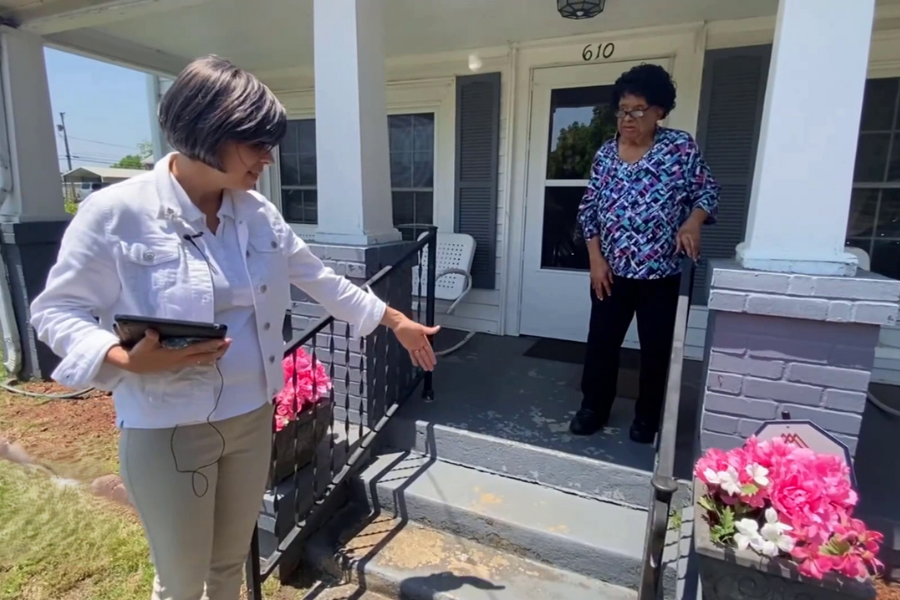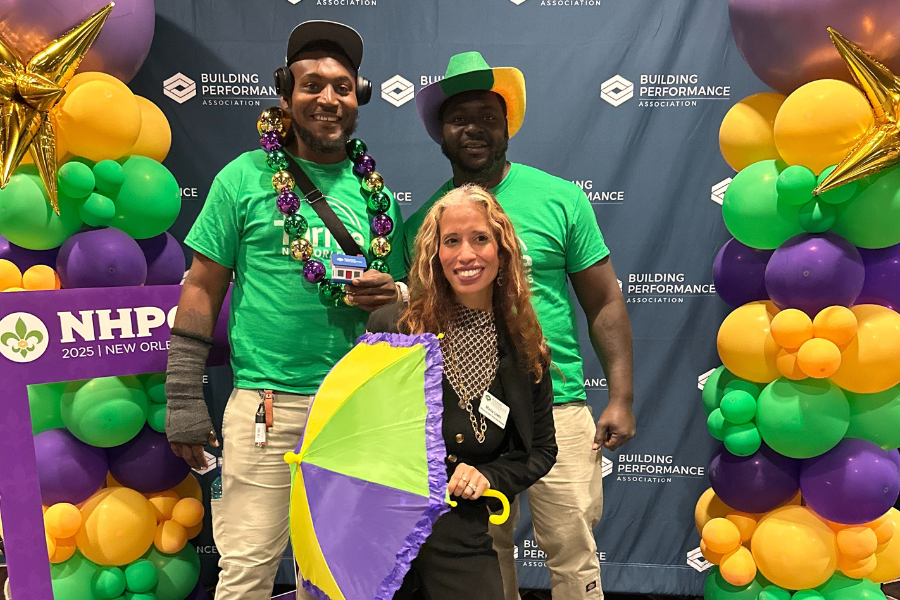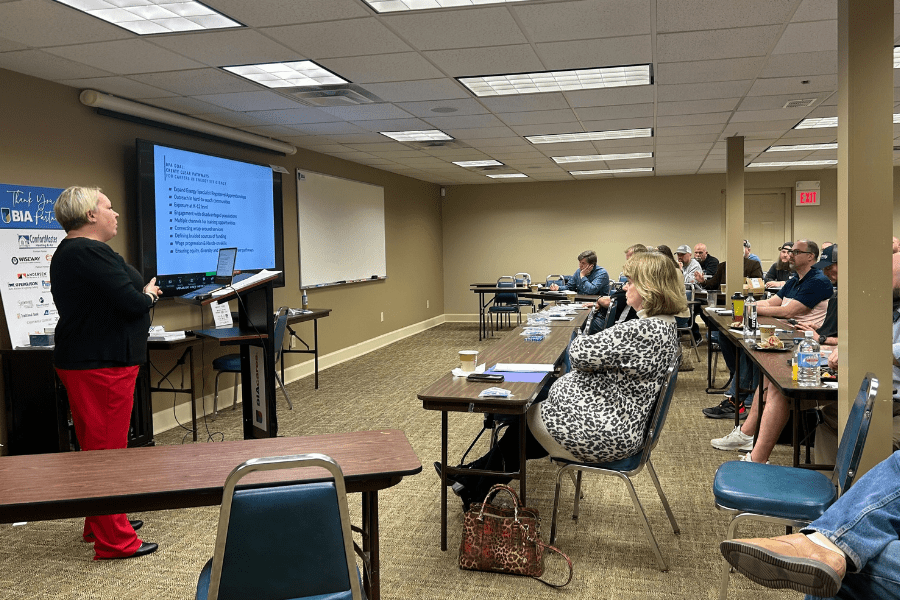May 22, 2024
From the Lobster Boat to Building Performance
Lobster fisherman turned Energy Auditor and Quality Control Inspector Cory Falabella explains how one opportunity changed the course of his life.
By: Tanner Butler
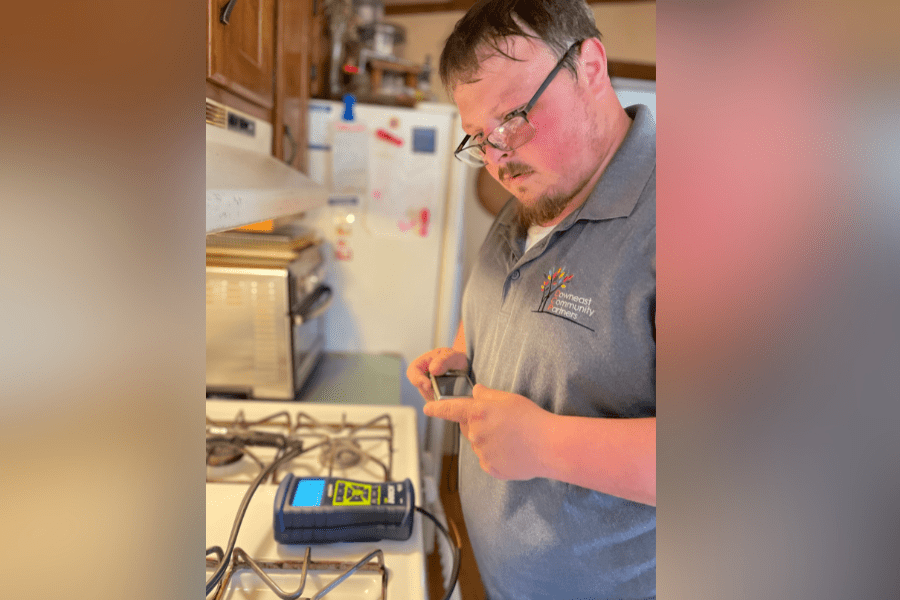
Cory Falabella’s story is one of transformation and discovery in the world of home performance. Growing up as a fifth-generation lobster fisherman, Falabella spent his summers on the Atlantic ocean near Maine, dreaming of continuing the family tradition. “I had never had a job in my life other than working in the family, lobster fishing and building boats,” he shared.
However, in early 2023, Falabella faced a pivotal moment. Regulations in the lobster fishing industry and the need to provide for his growing family pushed him to seek a more stable and lucrative career. He began browsing on Indeed and his search led him to an opportunity that would change the course of his life—a training program through Downeast Community Partners’ Clean Energy Partnership.
Downeast Community Partners (DCP) is a Community Action Agency whose mission is to reduce the impact of poverty and increase the quality of life in Downeast communities. That mission includes addressing the need for climate equity due to the disproportionate energy burden and negative health impacts in the homes of low-income Mainers. DCP works toward energy justice by weatherizing homes across Hancock and Washington counties through the Weatherization Assistance Program (WAP) and a contractual partnership with Maine Housing Authority.
In 2023, DCP added workforce development to the plethora of opportunities it offers the residents of Downeast Maine, through a grant funded by Gov. Mills’ Clean Energy Partnership. DCP collaborated with Washington County Community College (WCCC) to create a State-recognized Apprenticeship Program for Weatherization Technicians.
An apprenticeship is a paid work experience that combines classroom instruction with on-the-job training to set individuals up for a successful career. Cory Falabella and eight other apprentices, over 50% of whom were Black, Indigenous, and Other People of Color, were trained through that initial pilot, which paid a living wage and full benefits while participants were training and offered the chance to earn certifications and licensures.
The apprenticeship program spanned 12 months, or 2,000 hours, and focused on energy auditing and quality control inspection—fields Falabella knew little about at the start.
Initially, he admitted, “I thought it was just sealing up windows for the winter, putting sealant around doors, and stuff like that.” His perspective shifted drastically after his first Building Science course, where he learned to see a house as a system where each component works synergistically.
The value of hands-on training was evident to Falabella from the get-go. The first conference he attended through the program was eye-opening. “I knew then that this was my calling,” he said.
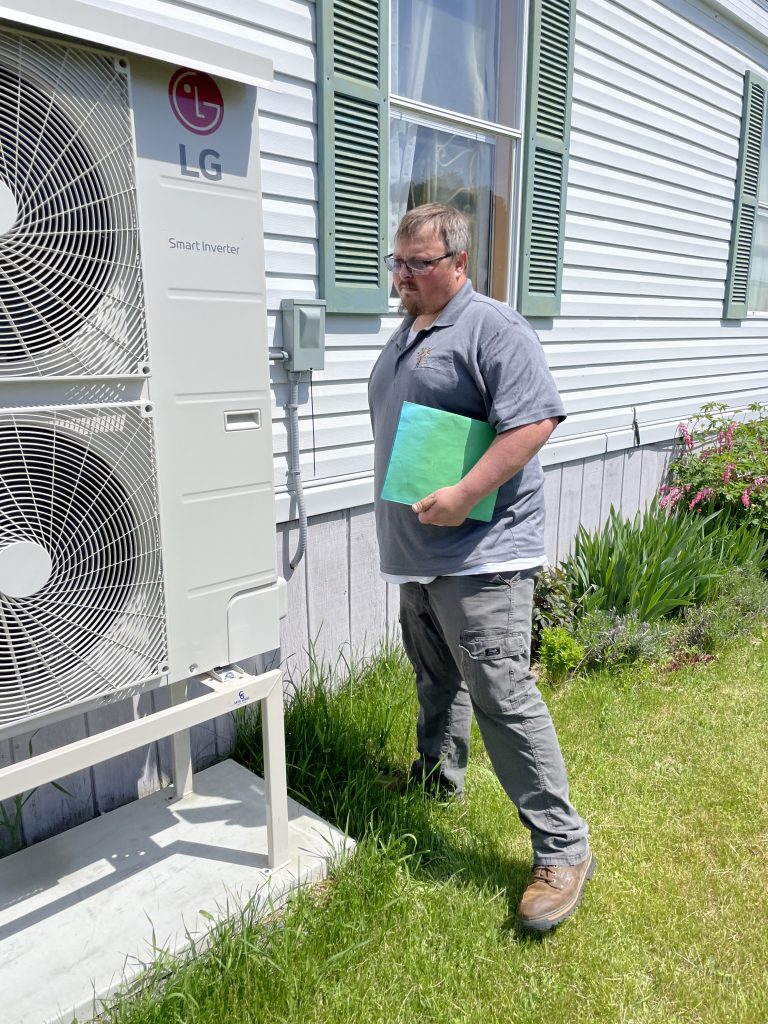
His dedication and ability to absorb complex information led him from training to real-world application. He impressed his mentor and peers, quickly moving from shadowing an energy auditor to conducting audits independently.
Through the program, Falabella earned numerous Building Performance Institute (BPI) certifications, including Building Science Principles, Building Analyst Technician, and Building Analyst Professional, along with certifications in OSHA, lead safety, asbestos awareness, weatherization, and first aid.
After proving his skills as an Energy Auditor, Falabella went on to prove himself even more by passing the Quality Control Inspector exam with flying colors. As both an Energy Auditor (EA) and Quality Control Inspector (QCI), he described his new career as more than just a job. “It’s a challenge, and I always like to challenge myself… when I’m good at something, I put my all into it,” he said.
He stayed on with DCP even after his apprenticeship technically ended, and continues to help weatherize homes in Downeast Maine. He shared, “I’m doing the same thing I was doing before, but I have a lot more responsibilities. When I’m on the job site, I’m in charge of the job.” He envisions a future where he might one day take on a Director role.
Falabella stated, “[Lobster fishing] was my dream and it still is my dream, but now I have a second dream that I’m passionate about and I’m good at.”
An apprenticeship program is an ideal way to tap into a new industry because it ensures that participants have what they need to succeed, even with no prior experience. Falabella emphasizes, “I wouldn’t be on this path if it weren’t for the apprenticeship program.”
He recognizes that the job security, career growth opportunities, and financial incentives (including having all costs for trainings and certifications covered under the apprenticeship program) make the opportunity something that one simply cannot pass up.
“I do things for my family. That’s why I had to give up lobster fishing–for my family. But I’m glad that I found something that I’m equally, if not more, passionate about,” Falabella said.
He still enjoys fishing on his boat with his family, but is glad to have a new career that is sustainable and fulfilling.
For businesses thinking about establishing an apprenticeship program, Cory Falabella’s journey illustrates the value of an apprenticeship program in recruiting fresh talent, getting your workforce certified, and supporting industry development.
The Building Performance Association (BPA), in collaboration with the Interstate Renewable Energy Council (IREC), continues to support the development of apprenticeship programs, and furthermore assists employers with getting their programs registered by the Department of Labor. This ensures that the program meets all regulatory requirements. For those interested in either joining an apprenticeship program or setting one up, check out BPA’s Apprenticeship information.


